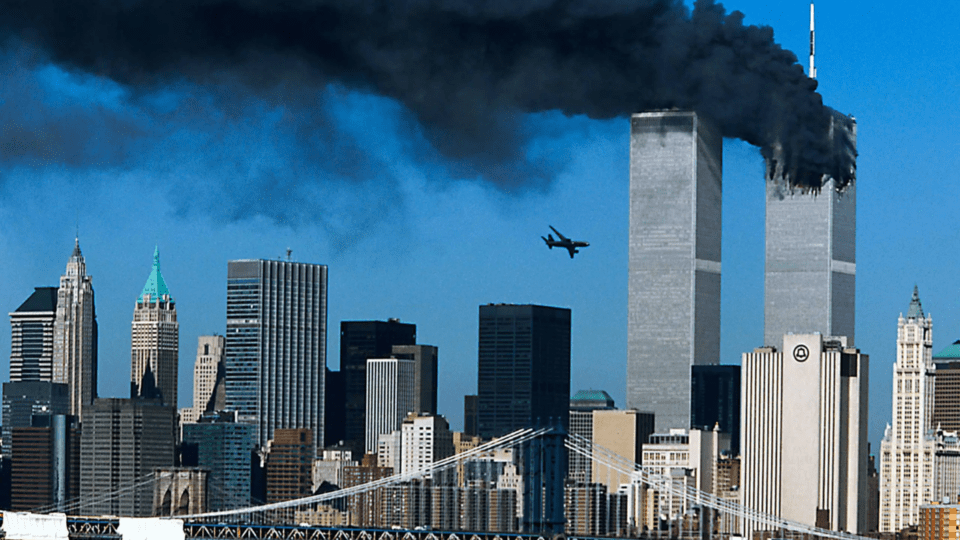On that pivotal Tuesday morning, 19 al-Qaeda terrorists hijacked four American commercial flights with destinations on the West Coast, deliberately crashing them. Two of these planes, American Airlines Flight 11 and United Airlines Flight 175, originated from Boston. At 8:46 a.m., Flight 11 struck the North Tower of New York City’s World Trade Center, followed by Flight 175 hitting the South Tower at 9:03 a.m., leading to the catastrophic collapse of both towers. Meanwhile, American Airlines Flight 77, departing from Dulles International Airport in Virginia, crashed into the Pentagon at 9:37 a.m. The final plane, United Airlines Flight 93, took off from Newark, N.J., and tragically crashed into a field in Shanksville, Pa., at 10:03 a.m. after brave passengers attempted to subdue the hijackers.
In less than 90 minutes on that late summer morning, the world experienced a seismic shift. This tragic day claimed the lives of nearly 3,000 individuals, and the United States found itself embroiled in its longest-ever war, with an estimated cost exceeding $8 trillion. The aftermath of 9/11 not only reshaped the global response to terrorism but also triggered vital debates on security, privacy, and the treatment of detainees. It prompted significant alterations in U.S. immigration policies and a surge in incidents of discrimination, racial profiling, and hate crimes.
Now, 22 years have passed since the horrifying 9/11 attack shook the United States to its core. This catastrophic event forever altered the course of history, leaving lasting echoes that continue to reverberate throughout the nation.
The events of September 11, 2001, remain indelibly etched in the collective memory of the United States, with nearly 3,000 lives lost in the devastating terrorist attacks that reshaped the nation’s history. Two decades later, the impact of 9/11 continues to permeate American society and politics.
Terrorism, inherently designed to instill widespread fear and uncertainty, extends its reach far beyond those directly affected by the events themselves. It encompasses the families of victims, survivors, and even those who witnessed the tragedy through broadcast images.
Within the academic realm, professors of Political Science and Government take pause to contemplate the profound impact of 9/11. This tragic day fundamentally altered the trajectory of American foreign policy and domestic priorities, leaving an indelible mark on the nation’s historical narrative.
In the immediate aftermath of the attacks, the nation bore witness to a swift and unprecedented political response. Americans rallied behind their leaders, demonstrating a level of bipartisan unity rarely witnessed in American politics. Industries were compelled to adapt swiftly to navigate the intricate challenge of striking a balance between terrorism prevention and national security.
Dr. Aaron Faver, Assistant Professor of Government at Amarillo College, underscores that the core of numerous social and political dialogues since 9/11 has revolved around the delicate equilibrium between security and individual liberties. The attack fundamentally transformed the American perspective on information, life, and the imperative of humility in the face of uncertainty.
The repercussions of 9/11 extended beyond the United States’ borders, with the invasion of Afghanistan and subsequent U.S. policies significantly destabilizing the Middle East and North Africa. This engendered a surge in anti-American sentiment across the region, leading to enduring consequences.
The cultural reverberations of 9/11 are immeasurable. For Muslim Americans, the aftermath of the attacks engendered the phenomenon of Islamophobia, manifesting in a sharp increase in hate crimes against Muslims. Discrimination and prejudice targeting the Muslim community endure, and government watchlists and surveillance measures disproportionately impact individuals with Muslim-sounding names.
Despite the passage of 22 years, Islamophobia remains deeply entrenched in certain parts of the United States, as emphasized by Hussam Ayloush, CEO of the California chapter of the Council on American-Islamic Relations (CAIR-CA). Muslim students in California persistently encounter bullying, and government watchlists continue to disproportionately affect Muslims.
The legacy of 9/11 is one marked by profound change, encompassing foreign policy, domestic security measures, and societal attitudes and cultural dynamics. It serves as a somber reminder of the enduring impact of a tragic day that irrevocably reshaped the course of American history.
Whether it’s 26/11 or 9/11, the ramifications of terrorism persist. Destruction extends beyond physical infrastructure, claiming lives and leaving a lasting imprint. These attacks not only affect the families of victims but also inflict enduring scars on survivors and those who lived through these harrowing times.
As an independent media platform, we do not take advertisements from governments and corporate houses. It is you, our readers, who have supported us on our journey to do honest and unbiased journalism. Please contribute, so that we can continue to do the same in future.

